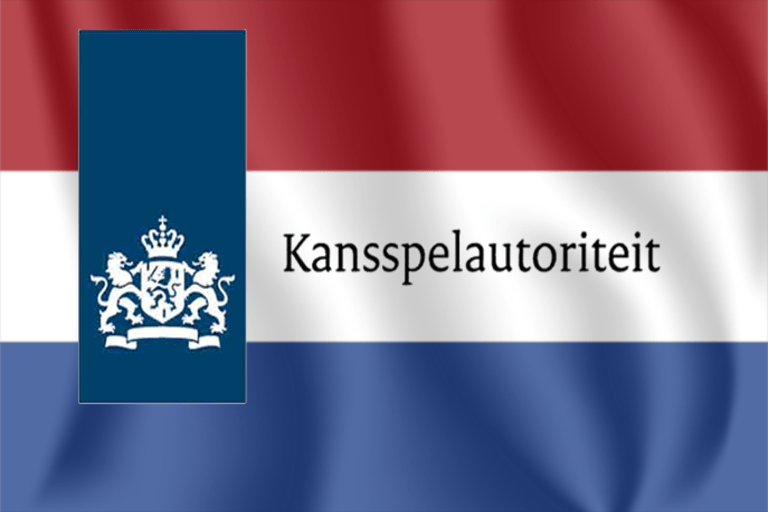The Netherlands’ Increasing Fines on Non-Compliant Online Casinos

Fines imposed on non-compliant online casinos in the Netherlands have recently seen a significant uptick as the government intensifies its crackdown on illegal gambling operations. With the regulatory landscape evolving, authorities are taking stricter measures to ensure that online gaming platforms adhere to Dutch laws and consumer protections. This informative post will explore the reasons behind these escalating penalties, their impact on the gambling industry, and what operators must do to remain compliant within the Dutch market.
Overview of Online Gambling Regulations in the Netherlands
Your understanding of the Netherlands' online gambling regulations is crucial, as these rules shape the landscape of legal gaming in the country. The Gambling Authority (Kansspelautoriteit) oversees the enforcement of these regulations, ensuring that online operators comply with the law to protect consumers and promote responsible gaming. As part of a broader approach, regulations focus on licensing, advertising restrictions, and consumer safeguards, all of which have undergone significant updates in recent years.
Historical Context
For decades, online gambling in the Netherlands operated in a grey legal area, with many players accessing unregulated foreign casinos. Until the introduction of the Remote Gambling Act (KOA) in 2021, the government struggled to create a clear legal framework that could control and manage online gaming while safeguarding players.
Recent Legal Developments
On April 1, 2021, the Remote Gambling Act officially came into effect, allowing licensed operators to offer online gambling services in the Netherlands. This significant legal change marked a turning point by facilitating a regulated environment where players could gamble safely while ensuring tax revenues for the state. Consequently, the consent of the Kansspelautoriteit is important for any online casino wishing to operate in the Dutch market.
Plus, the new regulations have empowered the Kansspelautoriteit to impose hefty fines on non-compliant online casinos, reflecting the government's commitment to regulating the market effectively. Additionally, stricter advertising rules were introduced, requiring operators to promote responsible gaming practices actively. These measures aim to curtail illegal gambling activities and ensure that players receive adequate consumer protections, fostering a safer online gambling environment in the Netherlands.
The Role of the Dutch Gaming Authority
One of the primary responsibilities of the Dutch Gaming Authority (Kansspelautoriteit) is to ensure compliance within the gambling sector, particularly regarding online casinos. The authority has stepped up its efforts in recent years to regulate the market effectively and protect consumers from unlicensed operators. As the landscape of digital gambling evolves, the Dutch Gaming Authority adapts its approach, using increased fines as a deterrent against non-compliance and promoting a safe gambling environment across the Netherlands.
Enforcement Mechanisms
With robust enforcement mechanisms in place, the Dutch Gaming Authority can take decisive action against operators who fail to adhere to regulations. This includes imposing significant financial penalties, suspending operations, and revoking licenses for persistent offenders. The authority's proactive stance evidences its commitment to safeguarding players' interests and maintaining the integrity of the gambling industry.
Monitoring Non-Compliant Operators
One major aspect of the Dutch Gaming Authority's strategy involves monitoring non-compliant operators to identify illicit activity in the online gaming sphere. This diligent oversight enables the authority to respond swiftly to violations, thereby maintaining a fair gaming environment. The comprehensive monitoring efforts rely on data analysis, player reports, and collaboration with international regulatory bodies to track and penalize unlawful operators.
Plus, the Dutch Gaming Authority employs advanced technology and analytical tools to enhance its monitoring processes. By leveraging data from players and integrating intelligence from various sources, the authority can pinpoint non-compliant operators more effectively. This approach not only increases the likelihood of sanctions against illegal casinos but also reinforces consumer trust in the regulated market. The authority's commitment to thorough oversight plays a vital role in ensuring that licensed operators uphold high standards of security and fairness.
Increasing Fines: Rationale and Impact
Assuming the need for regulatory compliance, the Netherlands has implemented increasing fines on non-compliant online casinos to enhance consumer protection and ensure fair play. These penalties serve as a deterrent for illegal operations while upholding the integrity of the gaming industry. As the government continues to refine its online gambling regulations, the escalating fines also reflect a commitment to safeguarding public interest against illicit activities and promoting a secure gaming environment.
Reasons for Escalating Penalties
Fines have been escalated to address the growing prevalence of illegal online gambling operations that undermine the regulated market. By increasing these penalties, authorities aim to create a more formidable deterrent against non-compliance, thereby fostering a safer gaming landscape. Enhanced fines also signal the government's serious stance toward enforcing regulations, ultimately leading to a more accountable and transparent gambling environment in the Netherlands.
Effects on Online Casino Operations
With the introduction of higher fines, online casinos are compelled to reevaluate their operational practices and compliance measures. Many operators are now placing greater emphasis on adhering to local laws, conducting regular audits, and ensuring transparency in their gaming offerings.
The increased scrutiny and corresponding financial penalties have prompted many online casinos to adopt stringent compliance measures to mitigate the risk of non-compliance. This not only involves regular audits and adherence to responsible gaming practices but also necessitates investment in technology and staff training to uphold regulatory standards. Consequently, while the fines aim to protect consumers, they also encourage a more regulated and ethical gambling environment, potentially leading to longer-term sustainability in the industry.
Compliance Challenges for Online Casinos
Once again, online casinos are facing significant compliance challenges as regulatory bodies tighten their grip on the industry. The Netherlands is at the forefront, intensifying efforts to ensure that operators adhere strictly to the established regulations. Non-compliance can lead to substantial financial penalties and reputational damage, making it crucial for online casinos to navigate this complex legal landscape effectively.
Common Violations
To identify the risks involved, it's crucial to recognize common violations that lead to fines. These can include operating without a valid license, failing to implement mandatory age verification processes, and inadequately protecting player data. Other frequent issues entail offering unauthorized bonuses and non-compliant marketing practices, all of which jeopardize both player safety and the integrity of the online gambling ecosystem.
Strategies for Compliance
Strategies to ensure compliance involve a multi-faceted approach that includes staff training, technology upgrades, and ongoing monitoring of regulatory changes. Operators must prioritize robust compliance programs and collaborate with legal experts to navigate the complexities of the regulatory framework effectively.
The adoption of an integrated compliance management system is vital for online casinos looking to avoid violations. This system should encompass employee training modules, regular audits of operations for adherence to regulations, and updates on changing laws. Furthermore, establishing a dedicated compliance team can help address potential issues proactively while fostering a culture of accountability and transparency within the organization. This structured approach not only mitigates risks but also enhances the overall trustworthiness of online casinos in the eyes of regulators and players alike.
Comparison with Other European Countries
Despite the Netherlands' stringent approach to regulating online casinos, other European countries adopt varying measures. While some follow aggressive fine structures, others focus on educational initiatives or a lighter touch regarding penalties for non-compliance. The table below illustrates these differences:
Fine Structures Across Europe
| Country | Fine Amounts |
|---|---|
| Netherlands | Up to €1 million |
| United Kingdom | Up to £25 million |
| France | Up to €10 million |
| Germany | Up to €5 million |
Regulatory Approaches
Regulatory frameworks across Europe show a spectrum of approaches towards online gambling. Countries like the UK emphasize player protection and offer comprehensive guidelines, while others implement stringent penalties without clear pathways for compliance. Each nation's philosophy shapes its regulation and impacts online operators' operations significantly.
Fine Structures
Comparison of fine structures reveals marked disparities across Europe. While the Netherlands has introduced hefty penalties for non-compliance that can reach up to €1 million, other nations like the UK impose even heftier fines, underlining the serious nature of operating illegally. This reflects a collective effort among European states to ensure that gambling regulations are both effective and enforceable.
Structures of fines may differ not only in terms of amounts but also in their application and regulatory intent. For instance, some countries incorporate tiered fine systems based on the severity and frequency of infractions, allowing for a more graduated response to non-compliance. In contrast, the Netherlands is leaning towards fixed penalties to streamline enforcement, signaling a robust stance against illicit online gaming operations.
Future Outlook for Online Gambling in the Netherlands
Not only are the fines on non-compliant online casinos set to increase, but the landscape of online gambling in the Netherlands is also expected to evolve significantly. The imminent changes in regulations and heightened enforcement efforts by the Dutch government will likely encourage more operators to comply with legal standards, creating a safer environment for players. As the market matures, we could see innovative gaming solutions and collaboration between operators and regulators, establishing a framework that fosters responsible gambling practices.
Potential Changes in Legislation
The regulatory environment surrounding online gambling in the Netherlands is continuously shifting, with potential changes on the horizon. Government officials are evaluating current policies to ensure they align with international best practices and address emerging trends in technology and gambling behavior. These adjustments may include stricter licensing requirements, enhanced player protection measures, and updated frameworks for taxation, reflecting a commitment to responsible gambling and consumer safety.
Industry Predictions
With the rapid evolution of the online gambling scene, industry experts predict significant growth and transformation in the Netherlands. The market is likely to see an influx of new operators entering the space, leading to increased competition and innovation. This expansion will be accompanied by a stronger focus on compliance and safety, ensuring that players are protected from unscrupulous practices. Furthermore, advancements in technology, such as artificial intelligence and blockchain, may revolutionize the way online casinos operate, enhancing transparency and user experience.
Gambling sector analysts anticipate that the combined effects of stricter regulations and the entrance of new market players will lead to a more dynamically balanced online gambling environment in the Netherlands. As operators strive to meet the government's rigorous compliance standards, we can expect advancements in responsible gaming initiatives and player engagement strategies. Moreover, the rise of popular trends like live dealer games and virtual reality experiences may redefine the landscape, attracting a broader demographic of players while ensuring a regulated and fair gambling experience.
Final Words
So, as the Netherlands continues to adapt its regulatory framework for online casinos, the significant increase in fines for non-compliant operators underscores the nation's commitment to maintaining a safe and fair gaming environment. These stricter penalties not only deter potential lawbreakers but also promote a more responsible gambling landscape for players. It will be crucial for operators to stay informed and compliant with the evolving regulations, as failure to do so can lead to severe financial consequences and potential market exclusion.
FAQs
Why are fines for non-compliant online casinos increasing in the Netherlands?
The increase in fines is part of the Dutch government's effort to enhance consumer protection and ensure fair play within the online gambling industry. The higher penalties are designed to deter illegal activities and encourage operators to comply with regulatory standards.
What is the Remote Gambling Act (KOA) and when did it come into effect?
The Remote Gambling Act (KOA) came into effect on April 1, 2021. It established a regulated framework for online gambling in the Netherlands, allowing licensed operators to offer services legally while ensuring consumer protection and tax revenue for the state.
How does the Dutch Gaming Authority (Kansspelautoriteit) enforce regulations?
The Dutch Gaming Authority enforces regulations through monitoring and oversight, imposing fines, suspending operations, and revoking licenses for non-compliance. They use advanced technology and data analysis to track and penalize illegal operators effectively.
What are some common violations that lead to fines for online casinos?
Common violations include operating without a valid license, failing to implement age verification processes, inadequate protection of player data, unauthorized bonuses, and non-compliant marketing practices.
How do the fines in the Netherlands compare to those in other European countries?
Fines in the Netherlands can reach up to €1 million. Compared to other European countries, this is relatively high, though countries like the UK and France impose even larger fines. The varying fine structures reflect different regulatory approaches across Europe.
Michael
With over 20 years experience in web design, SEO and website promotion I always give you an expert advice in regard to any issues related to your Site Design, SEO, Internet Marketing, Promotion, Backlinks, Site Content. In order to help you find out what is missing or can be improved and get higher rankings in Google and more traffic.
Recommended Posts

Gamanza Games Expands into the Dutch Market
October 5, 2024

Evolution’s Live Casino Studio Opens in Prague
October 5, 2024

Discover Mighty Symbols: Jokers by Wazdan
October 5, 2024




